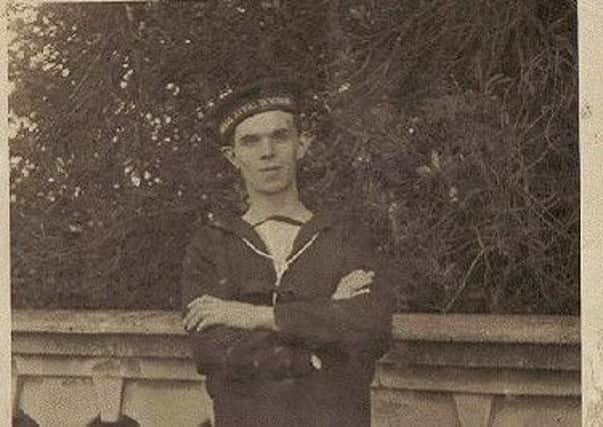Gazette's Roll of Honour for South Tyneside's fallen inspired by one man's search for great uncle


For Peter has worked tirelessly to compile a roll call of the fallen – a list you can view on the Gazette’s website and social media.
And the inspiration for such a Herculean task (it has taken Peter more than a decade to research and compile such an extensive historical archive) is one of those heroic soldiers, his great uncle Jim, who was killed in action at Gallipoli, aged 25.
Advertisement
Hide AdAdvertisement
Hide AdPeter said: “Approximately 4,500 South Tyneside men and women lost their lives in the First World War.
“We will never know the identities of everyone who died – how can you work out which ‘J. Robson’ you are dealing with on any particular honorific memorial when it is such a common North East name?
“You might have three or four such-named individuals living within a few streets of each other.
“You will readily understand that a final, definitive list is simply out of the question.
Advertisement
Hide AdAdvertisement
Hide Ad“However, I have identified about 85% of our local folk who died, which I believe is a highly satisfactory effort – providing the biggest collective roll of honour for any area of Northumberland and Durham.
“I’m happy to settle for that, for now, and believe that I have succeeded in doing our lads (and a few lasses) proud. I’d like to think they’d feel that.”
Readers can search for their relatives on the roll of honour which Peter kindly allowed the Gazette to reproduce in alphabetical order to mark the commemoration of the Armstice which brought tan end to the war that was supposed to end all wars.
“My inspiration for all of this and the progenitor of the whole project was my great uncle Jim,” explained Peter.
Advertisement
Hide AdAdvertisement
Hide Ad“He was killed in action at Gallipoli on 13 July, 1915, aged 25.
“Without his loss, this database would never have come to fruition,” added Peter, who recently spent four days at Gallipoli.
More than 100 South Tyneside men died there, and during the coming weeks we will feature Peter’s tribute to them.
Advertisement
Hide AdAdvertisement
Hide AdMillions of Allied troops, along with millions more from Germany and her allies, lost their lives in the First World War, as the world witnessed warfare on an industrial scale for the very first time.
For those relatives seeking information about family members who fought in the Great War, the Commonwealth War Graves Commission holds a register of the death of every member of the Armed Forces (Army, Navy, Air Force and Merchant Navy) as well as civilians from the United Kingdom, Australia, Canada, India, New Zealand and South Africa, in the 1914-1918 conflict.
Those soldiers, who lived through the horrors of that most brutal of wars, returned home; changed by what they have witnessed, and reluctant to relate their experiences to loved ones.
How could they put into words the nightmare they had lived through in the mud and barbed wire of the trenches?
Advertisement
Hide AdAdvertisement
Hide AdHowever, the words of one poet have come to speak for those who gave their lives for king and country, Laurence Binyon.
His poem, For The Fallen, was written in mid September 1914, just a few weeks after the outbreak of the war.
It is often quoted when we remember the sacrifice of those who fought and died many many miles away from home.
One verse in particular seems to capture the sentiment of a grateful nation.
It is this: –
They shall grow not old, as we that are left grow old:
Age shall not weary them, nor the years condemn.
At the going down of the sun and in the morning
We will remember them.
These words, and the playing of the last post, are a fitting tribute to their bravery – and their memory.